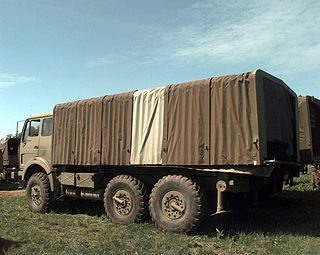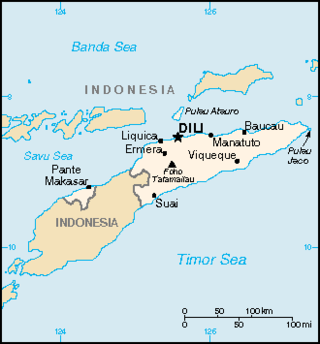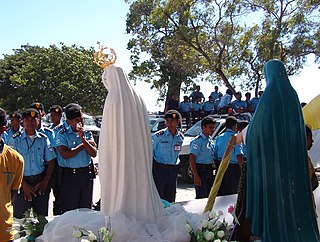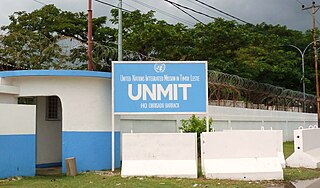
A United Nations Security Council resolution (UNSCR) is a United Nations resolution adopted by the Security Council (UNSC), the United Nations (UN) 15-member body charged with "primary responsibility for the maintenance of international peace and security".
United Nations Security Council Resolution 109 was adopted on 14 December 1955. After being instructed by the General Assembly to consider the applications for membership of Albania, Austria, Bulgaria, Cambodia, Ceylon, Finland, Hungary, Ireland, Italy, Jordan, Laos, Libya, Nepal, Portugal, Romania, and Spain, the Security Council recommended all 16 countries for admission to the United Nations.
United Nations Security Council Resolution 163, adopted on June 9, 1961, after General Assembly Resolution 1603 declaring Angola a Non-Self-Governing Territory the Council reaffirmed that resolution calling on Portugal to act in accordance with the terms. The Council called upon the Portuguese to desist from repressive measures and to extend every facility to the Sub-Committee on the Situation in Angola, appointed under the terms of the GA resolution, as well as expressing its hope that a peaceful solution will be found and requested that the Sub-Committee report to the Council and GA as soon as possible.
United Nations Security Council Resolution 180, adopted on July 31, 1963, affirmed that Portugal claiming its overseas territories as part of metropolitan Portugal was contrary to the principles of the Charter. The Council deemed Portugal's actions and attitude as seriously disturbing to peace and security in Africa.
United Nations Security Council Resolution 204, adopted unanimously on May 19, 1965, after a complaint by Senegal against Portugal, the Council deplored incursions by the Portuguese Armed Forces into Senegalese territory and requested that they take whatever measures necessary to assure Senegal's territorial integrity.
United Nations Security Council Resolution 218, adopted on November 23, 1965, after recalling previous resolutions on the topic, and Portugal's failure to implement them, the Council again demanded that Portugal withdrawal its military presence from her colonies and enter negotiations with political parties there regarding independence.
United Nations Security Council Resolution 268, adopted on July 28, 1969, after hearing statements by the parties involved, the Council strongly censured Portugal for attacks on in Katete in eastern Zambia. The Council called upon Portugal to desist from violating the territorial integrity of and carrying out unprovoked raids against Zambia. The Council demanded the Portuguese military return all civilians kidnapped and all property taken declaring that if Portugal failed to comply they would meet to consider further measures.
United Nations Security Council Resolution 275, adopted on December 22, 1969, after a letter from the representative of Guinea and observing that these incidents by Portugal jeopardize international peace and security, the Council called upon Portugal to desist from violating the sovereignty and territorial integrity of Guinea. The Council deeply deplored the loss of life and heavy damage to several Guinean villages inflicted by the action from Guinea-Bissau, a territory under Portuguese administration, solemnly warning Portugal that if such acts were to be repeated in the future the Council would consider further steps to give effect to the resolution. It also called upon Portugal to release a motor barge by the name of Patrice Lumumba and all of its passengers.
United Nations Security Council Resolution 294, adopted on July 15, 1971, disturbed by the longstanding Portuguese violations of Senegalese territory and the recent laying of mines inside that nation which was giving shelter to independentist guerrillas of PAIGC, during the Portuguese Colonial War. The Council noted Portugal's failure to comply with previous resolutions and demanded that they immediately cease all acts of violence and destruction in Senegal and respect her territorial integrity. The Council included the usual condemnations and requested that the Secretary-General urgently send a special mission of members of the Council assisted by their military experts to carry out an inquiry into the facts of the situation and make recommendations.
United Nations Security Council Resolution 302, adopted on November 24, 1971, after reaffirming previous resolutions on the topic, the Council expressed its appreciation for the work accomplished by the Special Mission established in resolution 294. The Council deplored the lack of co-operation with the Special Mission by the Portuguese and called upon its government to take effective measures so that the territorial integrity of Senegal would be respected and to prevent acts of violence and destruction against the territory and its people.
United Nations Security Council Resolution 312, adopted on February 4, 1972, after reaffirming previous resolutions on the topic and deploring those who failed to conform to them the Council called upon Portugal to immediately recognize the right of the peoples of her colonies to self-determination, to cease all acts of repression against the peoples of Angola, Mozambique and Guinea (Bissau), to withdraw its armed forces from those areas, to promulgate an unconditional political amnesty and to transfer power to freely elected native representative institutions.
United Nations Security Council Resolution 321, adopted on October 23, 1972, after reaffirming previous resolutions, the Council expressed its concern that Portugal persistently refused to comply with them. The Council attacked the latest cross-border action by the Portuguese army against Senegalese territory and demanded that the Portuguese cease any further acts of violence. The Council went on to reaffirm their position that Portugal's continued holding of colonies in Africa was unjust and that the native peoples of those colonies should be allowed self-determination.
United Nations Security Council Resolution 322, adopted unanimously on November 22, 1972, after reaffirming previous resolutions and considering the Organisation of African Unity's recognition of the revolutionary movements of Angola, Guinea-Bissau, Cape Verde and Mozambique, the Council called on the government of Portugal to cease its military operations and all acts of repression against the people of those territories. The Resolution called on Portugal to enter negotiations with the parties concerned with a view to achieving a solution to the armed confrontations and permitting the peoples of those territories to exercise their right to self-determination and requested the Secretary-General to follow developments and report periodically to the Council.

United Nations Security Council Resolution 1021, adopted on November 22, 1995, after recalling all resolutions on the situation in the former Yugoslavia, particularly resolutions 713 (1991) and 727 (1992), the Council set a date of March 13, 1996, for the suspension of most aspects of the arms embargo on the former Yugoslavia. Resolution 1074 (1996) terminated the remaining measures of the embargo.

United Nations Security Council resolution 1236, adopted unanimously on 7 May 1999, after recalling previous resolutions on East Timor including 384 (1975) and 389 (1976), the Council welcomed an agreement between Indonesia and Portugal on the future of East Timor and a proposed United Nations presence to assist with the East Timor Special Autonomy Referendum scheduled for August 1999.

United Nations Security Council resolution 1262, adopted unanimously on 27 August 1999, after recalling previous resolutions on East Timor, particularly resolutions 1246 (1999) and 1257 (1999), the Council extended the mandate of the United Nations Mission in East Timor (UNAMET) until 30 November 1999.
United Nations Security Council resolution 1390, adopted unanimously on 16 January 2002, after recalling resolutions 1267 (1999), 1333 (2000), 1363 (2001), 1368 (2001), 1373 (2001) 1378 (2001) and 1383 (2001) concerning the situation in Afghanistan and terrorism, the Council imposed further sanctions on Osama bin Laden, Al-Qaeda, the Taliban and others associated with them.

United Nations Security Council resolution 1401, adopted unanimously on 28 March 2002, after recalling all previous resolutions on the situation in Afghanistan, including resolutions 1378 (2001), 1383 (2001) and 1386 (2001), the Council endorsed the establishment of the United Nations Assistance Mission in Afghanistan (UNAMA). It would replace the longstanding United Nations Special Mission to Afghanistan.

Resolution 1973 was adopted by the United Nations Security Council on 17 March 2011 in response to the First Libyan Civil War. The resolution formed the legal basis for military intervention in the Libyan Civil War, demanding "an immediate ceasefire" and authorizing the international community to establish a no-fly zone and to use all means necessary short of foreign occupation to protect civilians.

United Nations Security Council Resolution 1802 was unanimously adopted on 25 February 2008.






